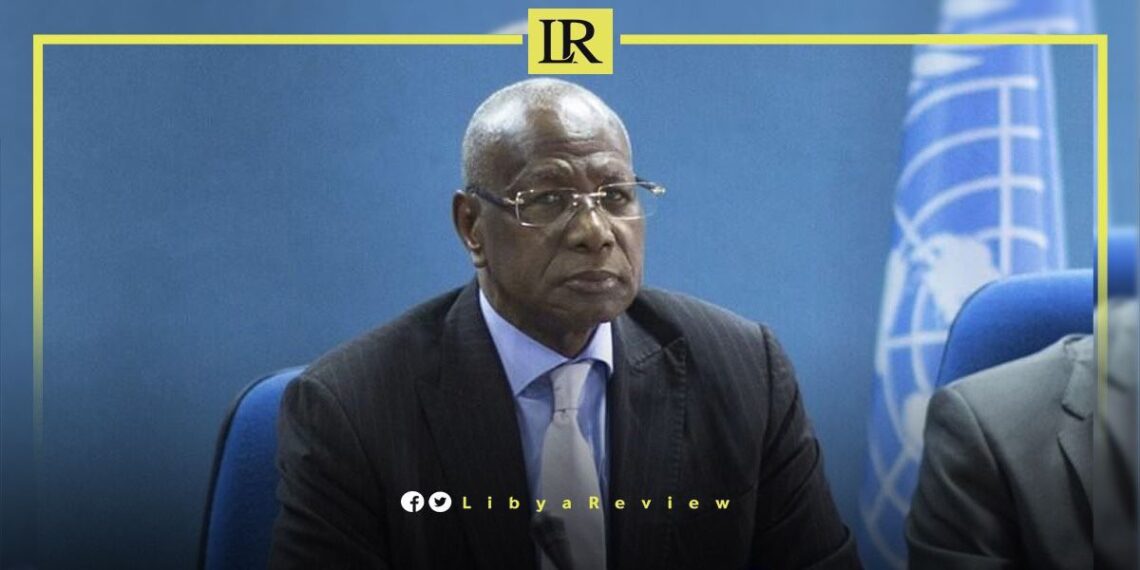Since he was appointed the UN envoy to Libya, Abdoulaye Bathily has failed to persuade Libyan parties to agree and gather around a single table, and to create the conditions for elections throughout his 17-month tenure.
Bathily proposed multiple initiatives to resolve the Libyan crisis and conduct elections, but none of these initiatives saw the light of day or were implemented on the ground.
Yesterday, Tuesday, Bathily announced his resignation from his position as the UN envoy to Libya following his briefing to the UN Security Council, pointing out that under the current circumstances in Libya, the United Nations has no means to act successfully.
In his last briefing to the Security Council, Bathily stated that Libyan officials dominating the political scene prioritize their personal interests over the country’s interests, urging the Security Council to pressure them and force them to dialogue to settle differences.
Bathily described the positions of the political parties in Libya as rigid, saying, “The selfishness of Libyan leaders comes at the expense of the Libyans and must stop immediately,” adding that all his attempts “met with stubborn resistance, unrealistic demands, disregard for the interest of the Libyan people, and a desire to delay the elections indefinitely.”
Bathily is the eighth diplomat to hold the position of the Secretary-General’s Special Envoy to Libya since 2011, officially appointed in September 2022.
Bathily’s appointment as the UN envoy to Libya came after numerous disputes among Security Council members and after the position had remained vacant for a long time, temporarily held by American diplomat Stephanie Williams.
Bathily did not offer any real initiatives to resolve differences between Libyans after the failure of the December 2020 elections. He settled for holding shuttle meetings with Libyan parties and influential international parties in the Libyan political process, encouraging solutions to disputes over election laws.
Even after the House of Representatives and the State Council agreed on election laws through the 6+6 committee formed by both councils, Bathily did not support it, instead favoring the position of the State Council, which retracted its approval of the election laws after appointing its new president, Mohamed Takala.
Bathily also did not support the positions of the Libyan House of Representatives, the only elected legislative body in the country, and directed his support to the expired mandate of the Government of National Unity, thereby enhancing the division between the east and west of the country.
Bathily opposed all attempts to resolve disputes, whether from members of the House of Representatives and the State Council or the Arab League, insisting that the solution must come through the UN mission.
His only move was to call for a quintuple meeting between the Presidential Council, the House of Representatives, the State Council, the General Command of the Libyan National Army, and the Government of National Unity to resolve the disputes standing in the way of conducting the elections.
However, his call was rejected by the House of Representatives and the General Command of the Libyan National Army because the government headed by Osama Hammad was not invited to the meeting.
Bathily faced numerous criticisms from political leaders and was not a consensus figure due to his bias towards the western camp represented by the Government of National Unity and the advisory State Council.
This was confirmed by the Prime Minister-designate of Libya, Osama Hammad, in his comments on Bathily’s last briefing, stating that his previous and erroneous practices indicate his constant bias towards one side over the other, and his continuous failure to gather all Libyan parties within a single reconciliatory scope.
Hammad also emphasized that Bathily’s approach was limited in dealing with all parties and deliberately ignored the legitimate Libyan government, which was entrusted and recognized by the House of Representatives, and his explicit leaning towards a government whose mandate and term had legally ended.


